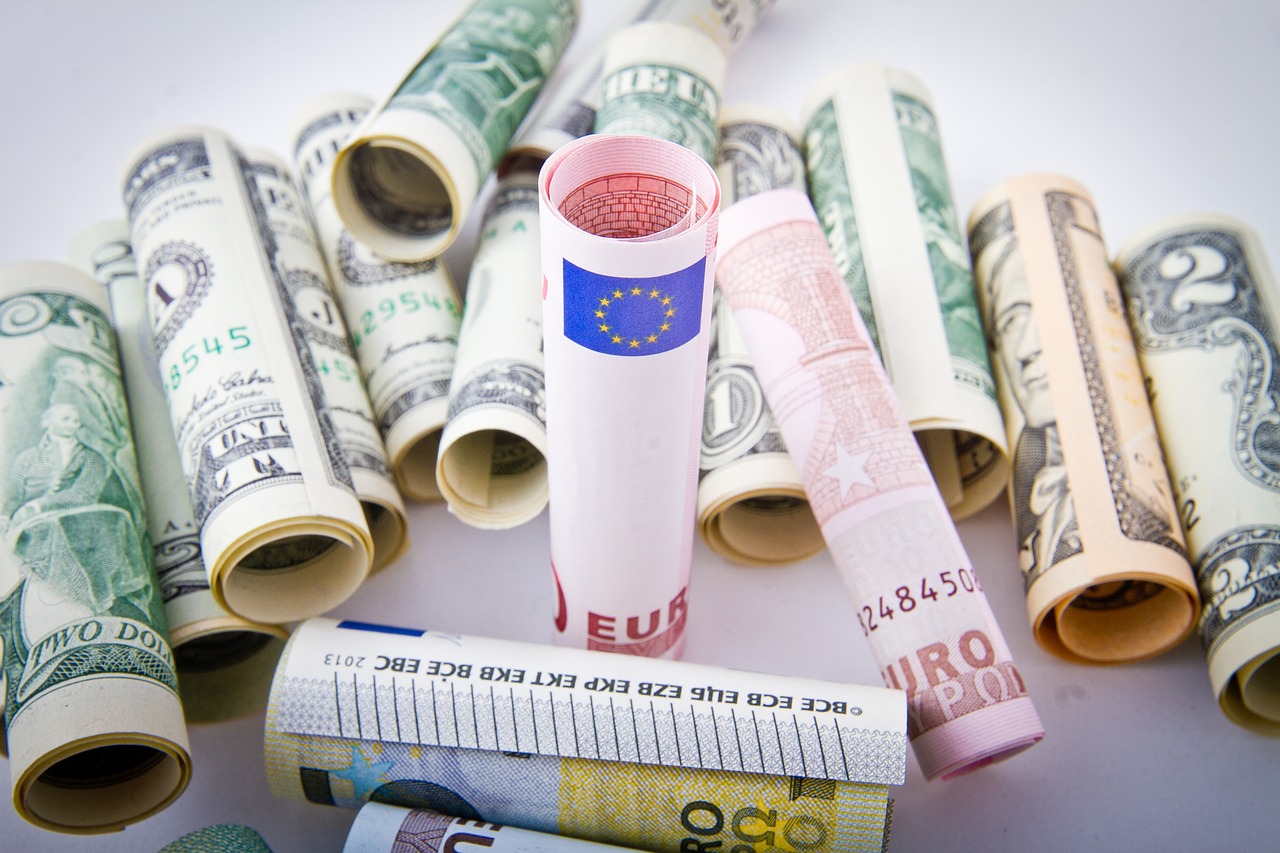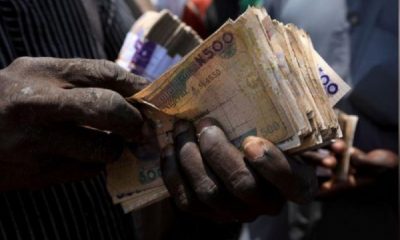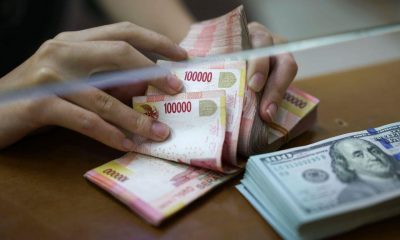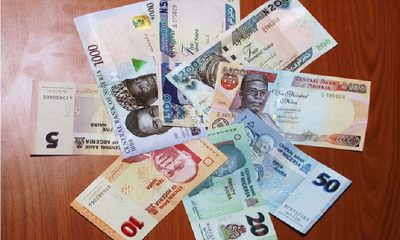Economy
The Best Forex Trading App in Germany: Your Guide to Secure and Successful Trading
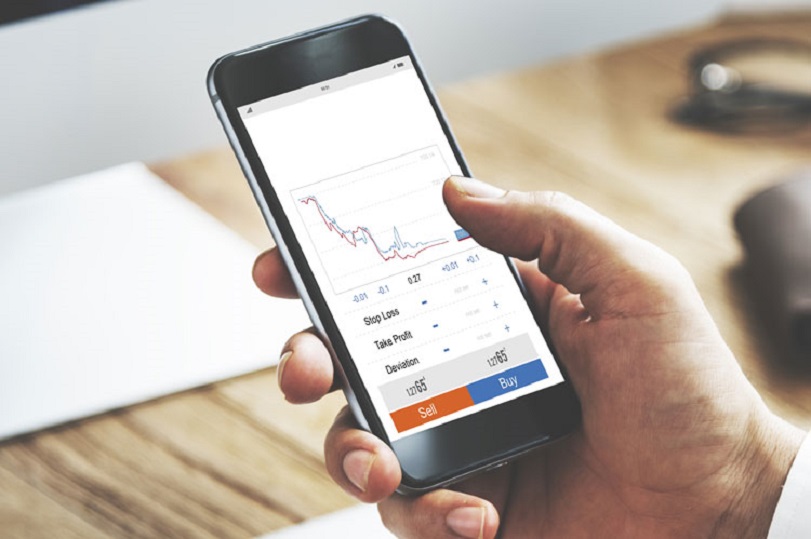
To succeed in Forex trading, it’s crucial for traders in Germany to choose the right Forex trading app. Traders Union experts emphasize that picking the wrong app can lead to losses. The best Forex apps should offer features like copy trading, demo accounts, and managed Forex accounts. While it may seem challenging to find such an app, it’s possible. This article lists the most popular Forex trading programs in Germany. A description of the strengths with the corresponding type of trade will help traders make the right choice.
Top Forex trading apps
The top Forex trading apps in Germany cater to local traders, providing user-friendly platforms for both beginners and experts. TU’s analysts will help you to choose the best Forex trading app in Germany.
- RoboForex – ideal for beginners. It offers a secure platform with various account options and regulatory oversight.
- Tickmill – known for low-cost trading, and is suitable for both beginners and experienced traders. It offers over 725 trading symbols.
- FXPro – with a tailored FxPro Edge app, FXPro caters to traders seeking responsive design and robust charting. It serves traders in over 173 countries.
- IC Markets – a go-to choice for scalpers and automated trading fans, IC Markets provides access to a wide range of assets and offers competitive spreads.
- MultiBank – ideal for both active and passive traders, MultiBank offers asset diversity, MAM/PAMM accounts, and a proprietary copy trading platform. It’s known for competitive spreads and regulatory oversight.
These apps provide a range of features and services, allowing traders to choose the one that best suits their needs and trading styles in Germany.
Selecting the right Forex trading app
When trading Forex in Germany, it’s crucial to choose the best brokers to avoid problems. To do this, traders consider:
- Safety and regulation
They ensure the broker is regulated by authorities like FCA, MAS, ASIC, BaFin, NFA, and CFTC to follow the law.
- User reviews
Traders read reviews from previous users to understand the broker’s services.
- Margins, leverage, and spreads
They check margin amounts, leverage, and spread costs for popular Forex pairs.
- Automation and platforms
Traders look for support for automation tools and the trading platform for each account type.
- Demo accounts
They verify if the broker offers a demo account for practice.
This helps traders have better experiences and gain an advantage when trading Forex, as suggested by analysts at Traders Union.
Getting started with Forex trading in Germany
Here’s how you can begin Forex trading in Germany, following advice from TU’s experts:
- Select a reliable Forex broker. Start by picking a regulated Forex broker, ensuring they follow the rules.
- Practice with a demo account. Before diving into real trading, use a demo account on the broker’s app. This helps you get comfortable with how it works.
- Develop trading strategies. While practicing on the demo account, work on different trading strategies and understand how to use technical indicators.
- Master risk management. Learn techniques for managing risks and evaluating the potential risks of a trade.
- Fund your real account. Once you’re ready, deposit funds into your real trading account and place your first Forex trade.
By following these steps, you can start your Forex trading experience in Germany with confidence.
Conclusion
The top Forex trading apps in Germany offer a variety of features to cater to traders of all levels, from beginners to experts. With the guidance of Traders Union, traders can choose the best Forex trading app that suits their needs. These apps, like RoboForex, Tickmill, FXPro, IC Markets, and MultiBank, provide diverse options and regulatory oversight for secure trading experiences.
Economy
Customs to Fast-Track Cargo Clearance at Lekki Deep Sea Port

By Adedapo Adesanya
The Comptroller-General of the Nigeria Customs Service (NCS), Mr Adewale Adeniyi, has unveiled a Green Channel initiative at the Lekki Deep Sea Port as part of efforts to simplify cargo clearance, reduce delays, and improve operational efficiency for port users.
The launch marks a major step in customs’ drive to enhance trade facilitation through technology and stakeholder collaboration.
Speaking at the event in Lagos, Mr Adeniyi said the initiative was introduced by the Lekki Deep Sea Port and approved by NCS management to address persistent challenges in container stacking and examination at major ports, which often slow cargo processing.
“This particular intervention helps to move containers right from the vessel into a dedicated place where customers can have access. And between the time the container moves from the vessel to this particular place, it is tracked,” he said.
The customs boss explained that the Green Channel is designed to ensure seamless cargo movement through a dedicated corridor with minimal bureaucratic obstacles, enabling faster turnaround time for importers and other stakeholders.
He described the initiative as a product of mutual trust between the agency and its stakeholders, stressing that compliance and cooperation are essential to its success.
“What we have done today is a product of the kind of trust that we have invested in our stakeholders and the confidence that we also have in them, that they would do this in the spirit of compliance and trade facilitation,” he said.
Mr Adeniyi added that beyond easing port operations, the Green Channel supports Nigeria’s broader economic objective of building a more competitive trade environment, noting that the initiative is expected to reduce the cost and time required to do business, ultimately boosting revenue generation for the service.
Economy
Jim Ovia Denies Knowledge of Wealth Bridge Investment Scheme

By Aduragbemi Omiyale
The chairman of Zenith Bank Plc, Mr Jim Ovia, has dissociated himself from a video making the rounds, purporting that he has endorsed an investment scheme put together by Wealth Bridge.
In a statement, it was emphasised that the video of the businessman is fake, as he has no link with Wealth Bridge, which urged Nigerians to invest in the business.
The management of Zenith Bank has, therefore, advised the public to disregard videos circulated through the Greece Island Facebook handle.
The promoters of the investment scheme promised prospective customers up to N2 million in weekly returns on a contribution of N380,000.
But Zenith Bank stressed that any member of the public who conducts business with the entity does so at his or her risk, as claims in the video that the investment has the backing of the Central Bank of Nigeria (CBN) are untrue.
“The video redirects unsuspecting members of the public to an alleged Arise News webpage with the details of this scheme and an embedded registration portal for signups. This claim is also entirely false and has no connection whatsoever to the bank or its group chairman.
“For the avoidance of doubt, all the videos and promotional materials referenced above are FAKE and have nothing to do with Zenith Bank Plc or Dr Jim Ovia. The Group Chairman of Zenith Bank and the bank have no knowledge of the said investment scheme and have not entered into any partnership with the companies, individuals, or platforms behind these schemes.
“The general public is hereby advised to disregard these fraudulent communications. Anyone who engages with the Greece Island handle, Wealth Bridge, delicious sitee, AfriQuantumX, Stock market analyst 1, or any other entity on the basis of these fake videos and images published by impostors does so strictly at his or her own risk,” parts of the statement read.
Economy
FG to Review Six-Month Shea Export Ban

By Adedapo Adesanya
The federal government has assured stakeholders in the shea value chain that it would review the export ban on shea nuts, citing concerns over its impact on local producers, exporters and foreign exchange (FX) earnings.
On August 26, 2025, President Bola Tinubu directed a six-month temporary ban on the export of raw shea nuts.
According to NAN, the Minister of Industry, Trade and Investment, Mrs Jumoke Oduwole, at a stakeholders’ validation session on the ban on raw shea nuts exports in Nigeria on Thursday, said the ministry would brief the president after consultations across the value chain.
The Minister, at the gathering in Abuja, said the government recognises the right of citizens to earn a living and contribute to national development, adding that all inputs from stakeholders would be carefully reviewed and consolidated.
“All inputs from stakeholders will be carefully reviewed and consolidated before a decision is made on whether the ban should be extended immediately or deferred,” the Minister said, adding that, “The ministry will provide the president with factual and balanced information to guide further action.”
Mrs Oduwole said the ministry engaged widely with stakeholders to ensure all perspectives were considered in the ongoing policy deliberations.
The ministry, she said, received formal submissions from the umbrella association and held engagement sessions attended by various industry representatives.
The minister said the submissions were reproduced and circulated at the meeting to promote transparency and shared understanding.
“Relevant departments within the ministry worked jointly on the matter, and I personally reviewed the submissions to assess our position ahead of broader consultations,” she said.
In his remarks, the Minister of Agriculture and Food Security, Mr Abubakar Kyari, said the meeting was convened to review the ban objectively, underscoring the need for verified facts and transparency.
Mr Kyari said government decisions intend to protect jobs and encourage local value addition, adding that policies should be assessed holistically based on evidence and measurable impact.
Rationalising the ban last August, the Vice President, Mr Kashim Shettima, said while Nigeria produces nearly 40 per cent of the global Shea product, it accounts for only 1 per cent of the market share of $6.5 billion.
“This is unacceptable. We are projected to earn about $300 million annually in the short term, and by 2027, there will be a 10-fold increase. This is our target,” the VP stated.
He explained that the ban was a collective decision involving the sub-nationals and the federal government with clear directions for economic transformation in the overall interest of the nation, stressing that the “government is not closing doors; we are opening opportunities.”
-

 Feature/OPED6 years ago
Feature/OPED6 years agoDavos was Different this year
-
Travel/Tourism10 years ago
Lagos Seals Western Lodge Hotel In Ikorodu
-

 Showbiz3 years ago
Showbiz3 years agoEstranged Lover Releases Videos of Empress Njamah Bathing
-

 Banking8 years ago
Banking8 years agoSort Codes of GTBank Branches in Nigeria
-

 Economy3 years ago
Economy3 years agoSubsidy Removal: CNG at N130 Per Litre Cheaper Than Petrol—IPMAN
-

 Banking3 years ago
Banking3 years agoSort Codes of UBA Branches in Nigeria
-

 Banking3 years ago
Banking3 years agoFirst Bank Announces Planned Downtime
-

 Sports3 years ago
Sports3 years agoHighest Paid Nigerian Footballer – How Much Do Nigerian Footballers Earn


